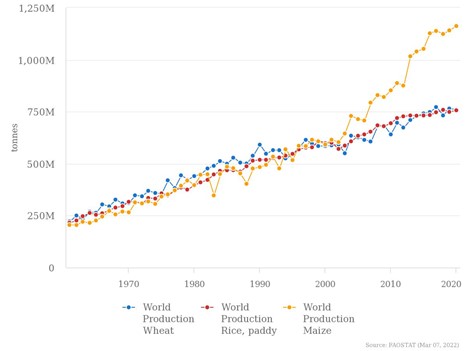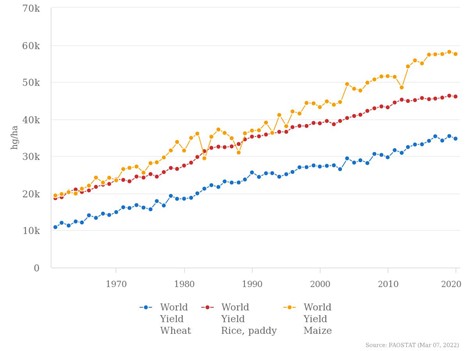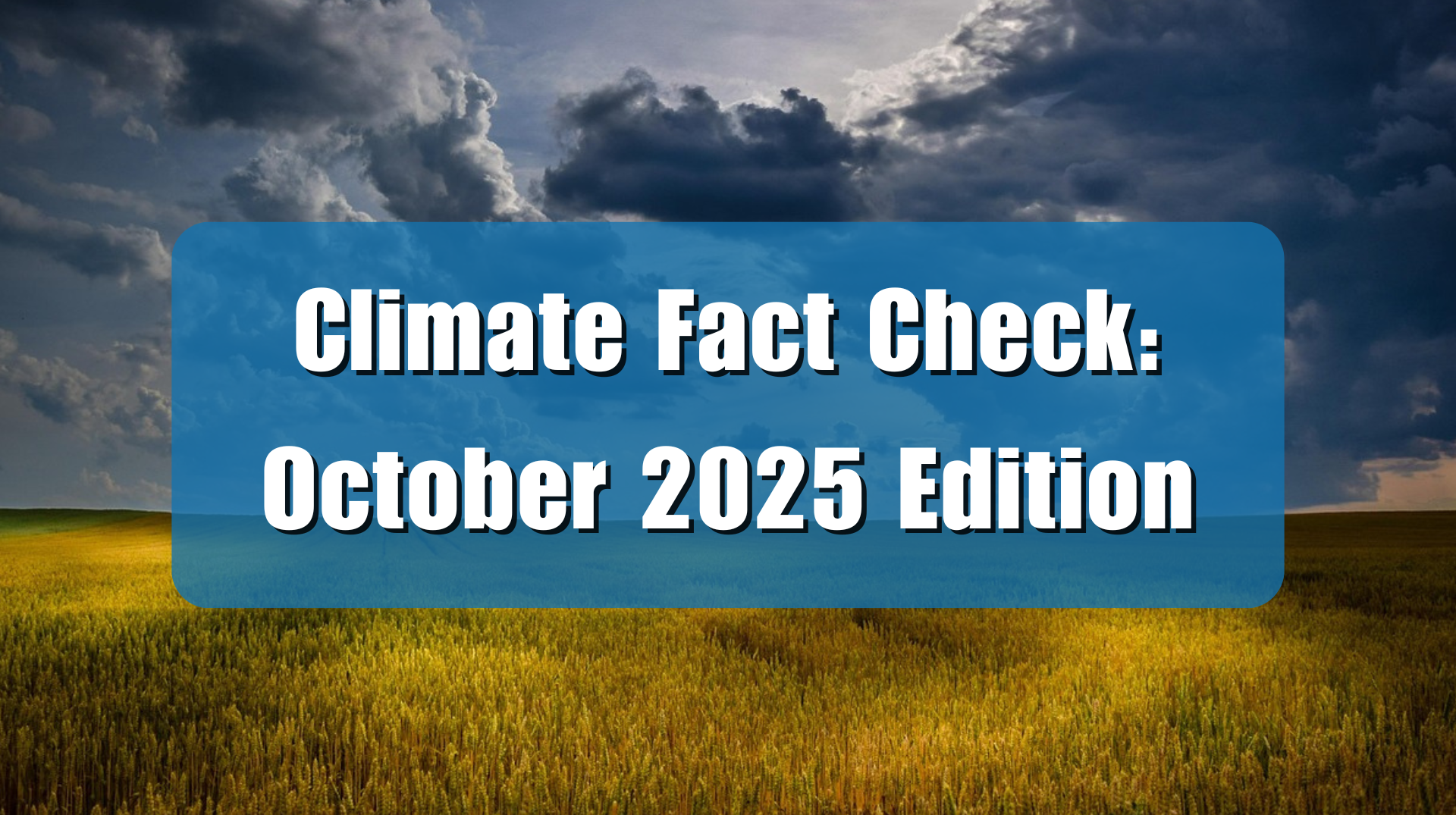A story in Wired claims climate change is harming crop yields. Nothing could be further from the truth. Data shows crop production and yields have grown substantially during the recent period of modest warming, setting new records nearly every year.
Wired’s story titled, “Climate Change Is Taking a Big Bite out of Our Food Supply,” references an alarming report issued by the United Nations Intergovernmental Panel on Climate Change (IPCC) last week to claim climate change threatens global food supplies, appallingly trying to make the story relevant by linking it to Russia’s invasion of the Ukraine.
With its siege on neighboring Ukraine, Russia has embroiled two of the world’s five leading wheat exporters in a chaotic war, representing about a quarter of the global trade in staple grain. Not surprisingly, global wheat prices surged during the first few days of the invasion.
Geopolitical shocks like Russia’s attack on Ukraine fall upon a global food system already wobbling from climate change, according to the latest report released on Monday by the Intergovernmental Panel on Climate Change, the United Nations’ assemblage of 270 researchers from 67 countries.
Warmer temperatures have already lowered yields of the globe’s big three staple crops—corn, wheat, and rice—by 5.3 percent since 1961, the authors find.
The IPCC and Wired should have checked their facts. War and geopolitical strife can hamper food production, but even in the face of wars, revolutions, and border disputes, over time, rather than declining 5.3 percent, staple crop yields have risen markedly over past six decades. This represents truly shoddy reporting, unless Wired’s goal was not to inform, but to scare its readers.
Citing the copious data compiled by the the United Nations Food and Agriculture Organization, Climate Realism has published more than 120 stories over the past two years exposing claims that crop production is declining due to global warming as lies. The articles, covering a range of crops and regions of the earth, tell a consistent story of higher production and improved yields.
Most recently, in a Climate Realism guest post, Willis Eisenbach thoroughly debunks the claim that warmer temperatures are harming crop production.
Whereas the IPCC and Wired claim global warming has lowered production of the “big three” staple crops, corn, wheat, and rice, FAO data show just the opposite.
The FAO reports, between 1961 and 2020, the last year for which the FAO has final records (see the figure 1, below):
- Corn production has increased by approximately 467 percent;
- Rice production has grown by about 251 percent;
- Wheat production has risen by more than 242 percent.
Figure 1: Corn, Rice, and Wheat Production 1961-2020

The evidence shows production increased, not because farmers devoted more land to crop production, but because yields rose, at least in part due to higher carbon dioxide concentrations. The FAO reports, between 1961 and 2020(see the figure 2, below):
- Corn yields per acre increased by more than 196 percent;
- Rice yields per acre grew by almost 147 percent;
- Wheat yields per acre rose by more than 219 percent.
Figure 2: Corn, Rice, and Wheat Yields 1961-2020

Agronomy explains why crops production is booming under current climate conditions. As detailed by the Non-governmental International Panel on Climate Change in Climate Change Reconsidered: Biological Impacts and Climate Change Reconsidered II: Fossil Fuels, the carbon dioxide humans have been pumping into the air since the middle of the 20th century has enriched plant growth and improved plants’ water use efficiency, thereby contributing to record crop yields. This aided in bringing about the largest decline in hunger, malnutrition, and starvation in human history.
Indeed, in response to rising carbon dioxide concentrations in the atmosphere, “The Social Benefits of Fossil Fuels,” reports the “increase in atmospheric [carbon dioxide] concentration … caused by the historical burning of fossil fuels has likely increased agricultural production per unit [of] land area by 70 percent for C3 cereals [which include rice, wheat, oats, cotton, and evergreen trees], 28 percent for C4 cereals [which include sorghum, maize, and various grasses], 33 percent for fruits and melons, 62 percent for legumes, 67 percent for root and tuber crops, and 51 percent for vegetables.”
With the evidence being so clear, one can only speculate why the IPCC reported flawed data and why Wired didn’t do a little fact checking on their numbers. Regardless of their motives, their claims about the impact of climate change on crop production are nothing better than manure. Crops are doing well and people are benefitting.























